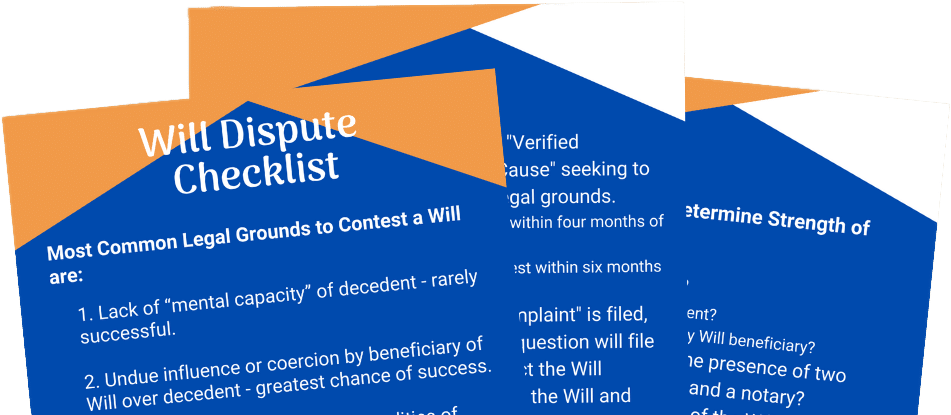A Will is a powerful tool that lets a person decide exactly what happens to their property when they die. A Will ensures that your wishes — such as who shall serve as your executor to who receives your property — are carried out. Knowing these matters will be taken care of when you die provides you and your family peace of mind.
But if a Will is later contested, it may be deemed invalid by the Court, and is unlikely that your wishes will be carried out the way you want. There are simple steps to take to safeguard against a Will being contested.
Under New Jersey law, there are two basis upon which a Will can be contested. The first basis is to allege that the Testator (person who has made the Will) was not of sound mind when they executed (signed) the Will. This is often a difficult allegation to prove. The second basis is premised on an allegation of “undue influence” on the Testator during the crafting of the Will. Here one would have to prove that the Testator was so unduly influenced by another person to the point that the Will ultimately reflected the wishes of the influencer and not of the Testator.
If the competency of the Testator could be questioned, it’s important to include evidence of their mental state along with the Will. This could be a note from a physician or attorney certifying the person’s competency, or a video recording to demonstrate that the decisions were made clearly, voluntarily and free from coercion. New Jersey law requires that a person be of sound mind — enough to understand the Will’s meaning, purpose, substance, and scope — for a Will to be valid.
Problems with the document itself or failure to follow the law in executing the Will could also lead to a Will contest. The basic requirements for a Will in New Jersey are as follows:
- The Testator must be 18 years or older
- The Testator must be of sound mind
- The Will must be signed by at least two people who witnessed the testator sign or witnessed the testator acknowledge their signature on the Will, or the Will itself.
In New Jersey, a handwritten Will (also known as a holographic Will) can be valid only if material provisions of the Will are in the Testator’s handwriting and it is signed by the Testator. Wills made orally are not valid in New Jersey.
Will validity may also be called into question if the document is not complete or is inaccurate. Sometimes, a Will may be so out of date that it fails to include all the Testator’s property or beneficiaries (such as after-born children). If the Will does not explicitly state to whom and how the assets are distributed or fails to do so accurately, a probate court may decide that the estate shall be divided under the laws of intestacy. The intestacy laws of New Jersey dictate how an estate is distributed if you die without a Will and looks to your closest living next of kin as set by law.
If you are faced with a Will validity question, you should seek out the help of a qualified trust and estate attorney. Our attorneys are experienced in helping to make this assessment and provide the guidance you may need in the event of a Will dispute. Schedule a consult with one of our experienced estate law attorneys by calling 856.782.8450 or visiting our website at www.timriceelderlaw.com.



